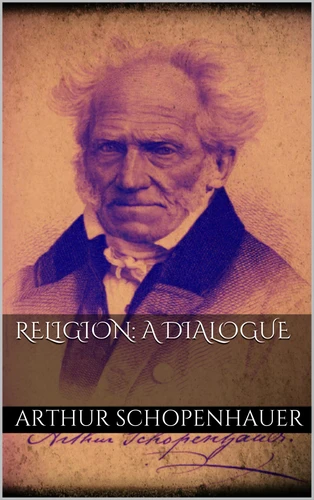
Religion: a Dialogue
Par :Formats :
Disponible dans votre compte client Decitre ou Furet du Nord dès validation de votre commande. Le format ePub est :
- Compatible avec une lecture sur My Vivlio (smartphone, tablette, ordinateur)
- Compatible avec une lecture sur liseuses Vivlio
- Pour les liseuses autres que Vivlio, vous devez utiliser le logiciel Adobe Digital Edition. Non compatible avec la lecture sur les liseuses Kindle, Remarkable et Sony
 , qui est-ce ?
, qui est-ce ?Notre partenaire de plateforme de lecture numérique où vous retrouverez l'ensemble de vos ebooks gratuitement
Pour en savoir plus sur nos ebooks, consultez notre aide en ligne ici
- Nombre de pages116
- FormatePub
- ISBN978-3-7494-0755-2
- EAN9783749407552
- Date de parution18/02/2019
- Protection num.Digital Watermarking
- Taille420 Ko
- Infos supplémentairesepub
- ÉditeurA PRECISER
Résumé
Schopenhauer is one of the few philosophers who can be generally understood without a commentary. All his theories claim to be drawn direct from the facts, to be suggested by observation, and to interpret the world as it is; and whatever view he takes, he is constant in his appeal to the experience of common life. This characteristic endows his style with a freshness and vigor which would be difficult to match in the philosophical writing of any country, and impossible in that of Germany.
If it were asked whether there were any circumstances apart from heredity, to which he owed his mental habit, the answer might be found in the abnormal character of his early education, his acquaintance with the world rather than with books, the extensive travels of his boyhood, his ardent pursuit of knowledge for its own sake and without regard to the emoluments and endowments of learning.
If it were asked whether there were any circumstances apart from heredity, to which he owed his mental habit, the answer might be found in the abnormal character of his early education, his acquaintance with the world rather than with books, the extensive travels of his boyhood, his ardent pursuit of knowledge for its own sake and without regard to the emoluments and endowments of learning.
Schopenhauer is one of the few philosophers who can be generally understood without a commentary. All his theories claim to be drawn direct from the facts, to be suggested by observation, and to interpret the world as it is; and whatever view he takes, he is constant in his appeal to the experience of common life. This characteristic endows his style with a freshness and vigor which would be difficult to match in the philosophical writing of any country, and impossible in that of Germany.
If it were asked whether there were any circumstances apart from heredity, to which he owed his mental habit, the answer might be found in the abnormal character of his early education, his acquaintance with the world rather than with books, the extensive travels of his boyhood, his ardent pursuit of knowledge for its own sake and without regard to the emoluments and endowments of learning.
If it were asked whether there were any circumstances apart from heredity, to which he owed his mental habit, the answer might be found in the abnormal character of his early education, his acquaintance with the world rather than with books, the extensive travels of his boyhood, his ardent pursuit of knowledge for its own sake and without regard to the emoluments and endowments of learning.


















